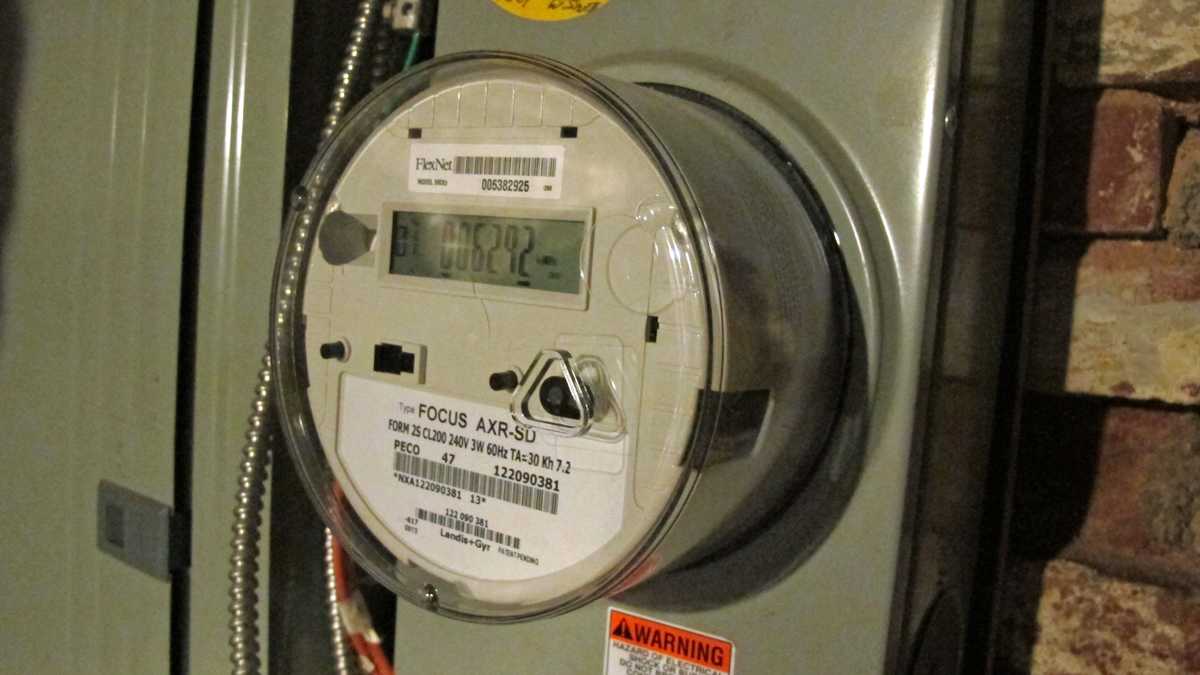PECO’s proposal for prepaid energy bills gets pushback

(Katie Colaneri/WHYY)
You’ve likely heard of pre-paid cell phones and debit cards that allow you to pay your bills upfront. Now PECO wants to let you do the same thing with your energy bill.
Here’s what PECO is proposing: Instead of getting a monthly bill for the electricity or natural gas they’ve used, consumers would pay for their utilities as they go. They would spend down the balance as they use energy and pay for more when the account gets low. Their usage would be tracked by the smart meters required to be installed in each PECO customers’ home.
The company is asking state regulators for permission to pilot this idea for one year with 1,000 of its 1.6 million customers starting in early 2018. The goal, PECO claims, is to help them consume less.
“This closely ties your awareness about how much energy you’re using and how much money that does cost you, so it also begins to kind of push people towards the idea of using energy more wisely,” said spokesman Greg Smore.
“It’s good for folks with different budgets or different financial situations where it might be easier to break off smaller chunks of their energy bill over time versus paying one full bill after the energy has been consumed,” he added.
However, the proposal is getting pushback from consumer advocates who say it’s a way for utilities like PECO to get around a state law banning them from shutting off power for people living at 250 percent of the federal poverty level (about $60,000 a year for a family of four) during winter months.
In its petition to the Pennsylvania Public Utility Commission or PUC, PECO says a customers with a zero or negative balance would be given a five-day grace period, along with daily reminders to load more funds. Once that grade period is over, PECO would remotely disconnect service. Customers who opt into the pilot program would sign an agreement that failure to re-load credits to their accounts “constitutes a request for discontinuence,” the petition says. According to Smore, that includes disconnections during winter months.
Patrick Cicero with the Pennsylvania Utility Law Project argues that policy would create a second class of customers: the poor. He compares this situation to low-income people using prepaid cell phones.
“If you run out of minutes in the middle of the month, that creates communication barriers,” Cicero said. “But if you run out of energy in the middle of the month, this is exponentially worse. You’re subject to either extreme heat or extreme cold. You’re subject to medical conditions which may be aggravated.”
Initially, PECO had proposed opening the pilot to all customers, but after hearing concerns from consumer advocates, the company amended its petition so that the poorest — those at 150 percent of federal poverty level, or $36,450 a year for a family of four — would not be allowed to participate.
For others, the program would be voluntary and they would be able to go right back to getting monthly bills any time.
The Pennsylvania Utility Law Project, representing another consumer group, has intervened in the case, along with the state Office of Consumer Advocate and a Philadelphia-based tenant advocacy organization.
An administrative law judge for the Pennyslvania Public Utility Commission will hear from both sides during a pre-hearing conference call on Jan. 23. Cicero said opponents of the proposal plan to push for additional in-person hearings across PECO’s service territory.
WHYY is your source for fact-based, in-depth journalism and information. As a nonprofit organization, we rely on financial support from readers like you. Please give today.




